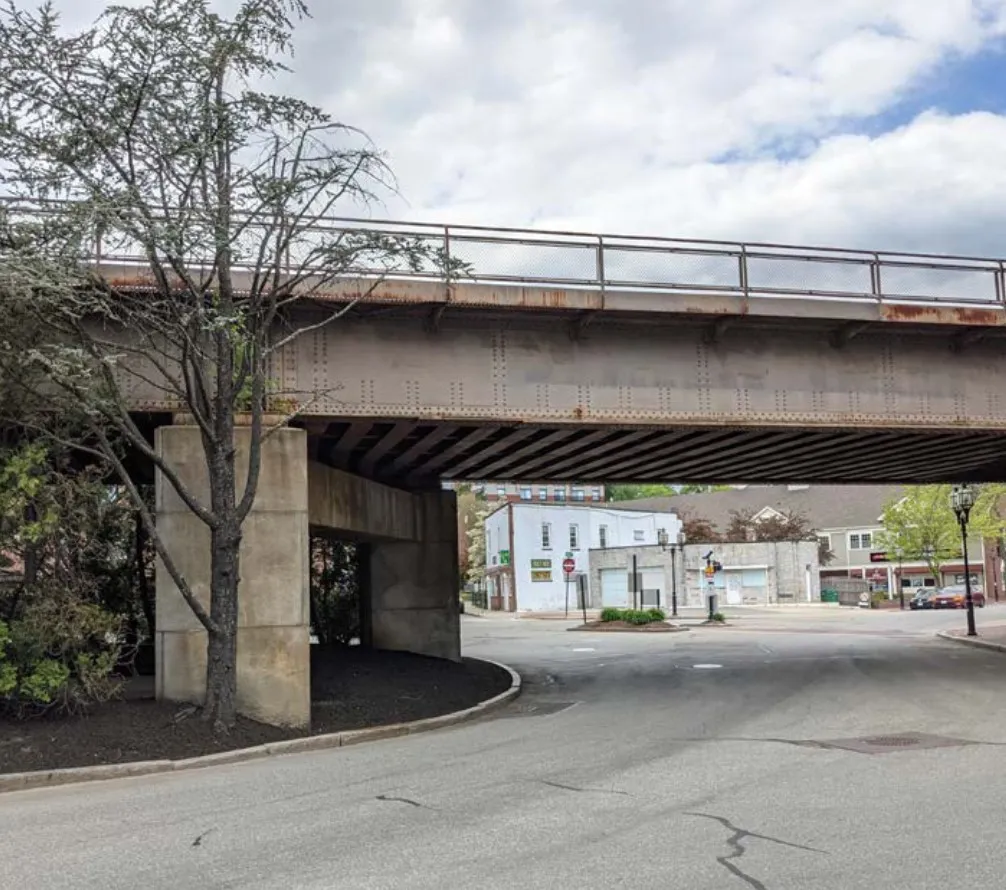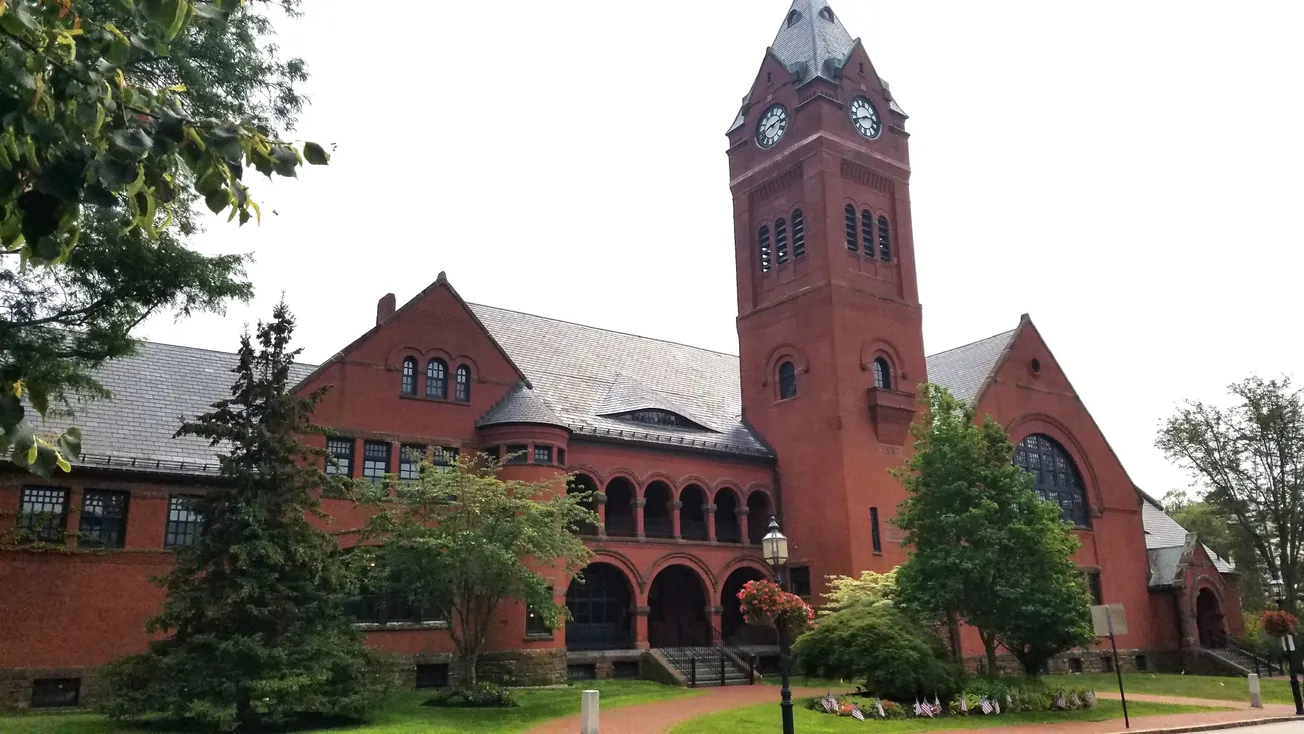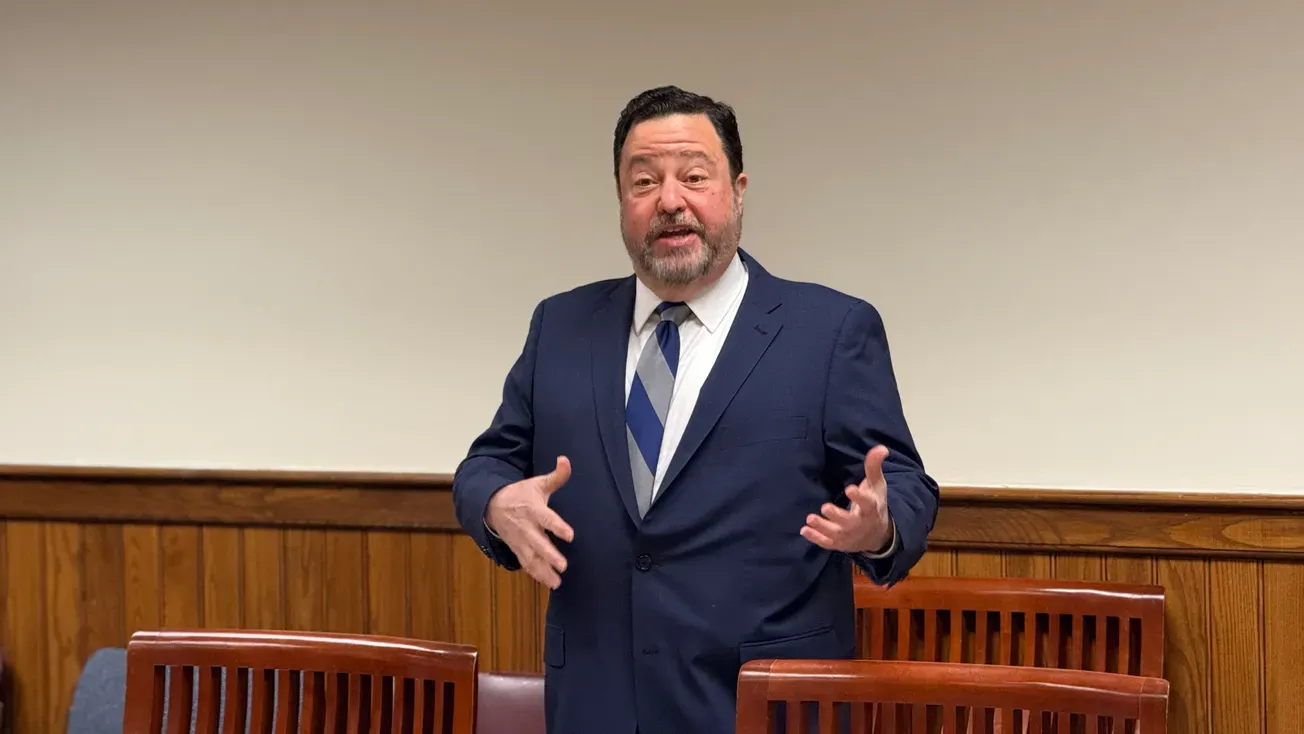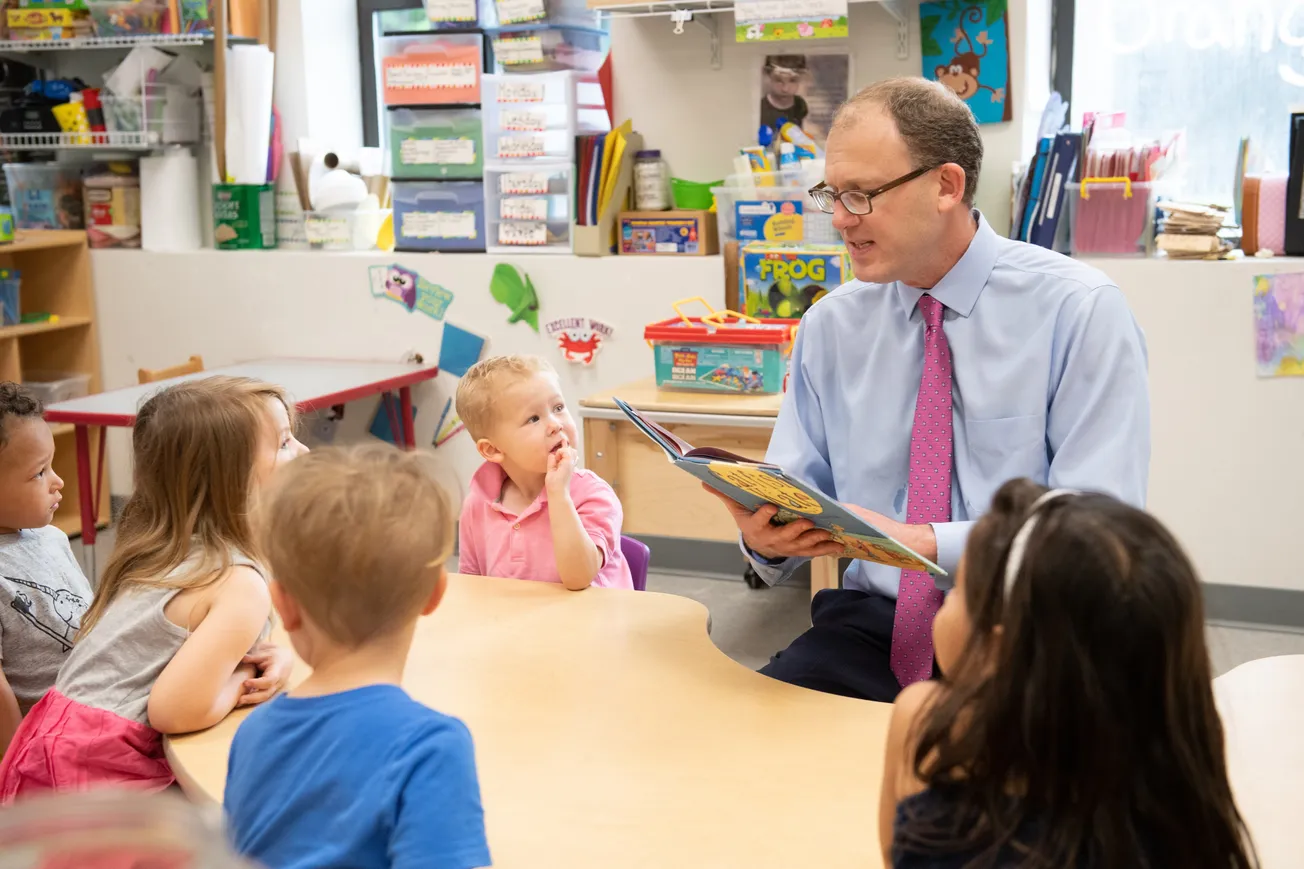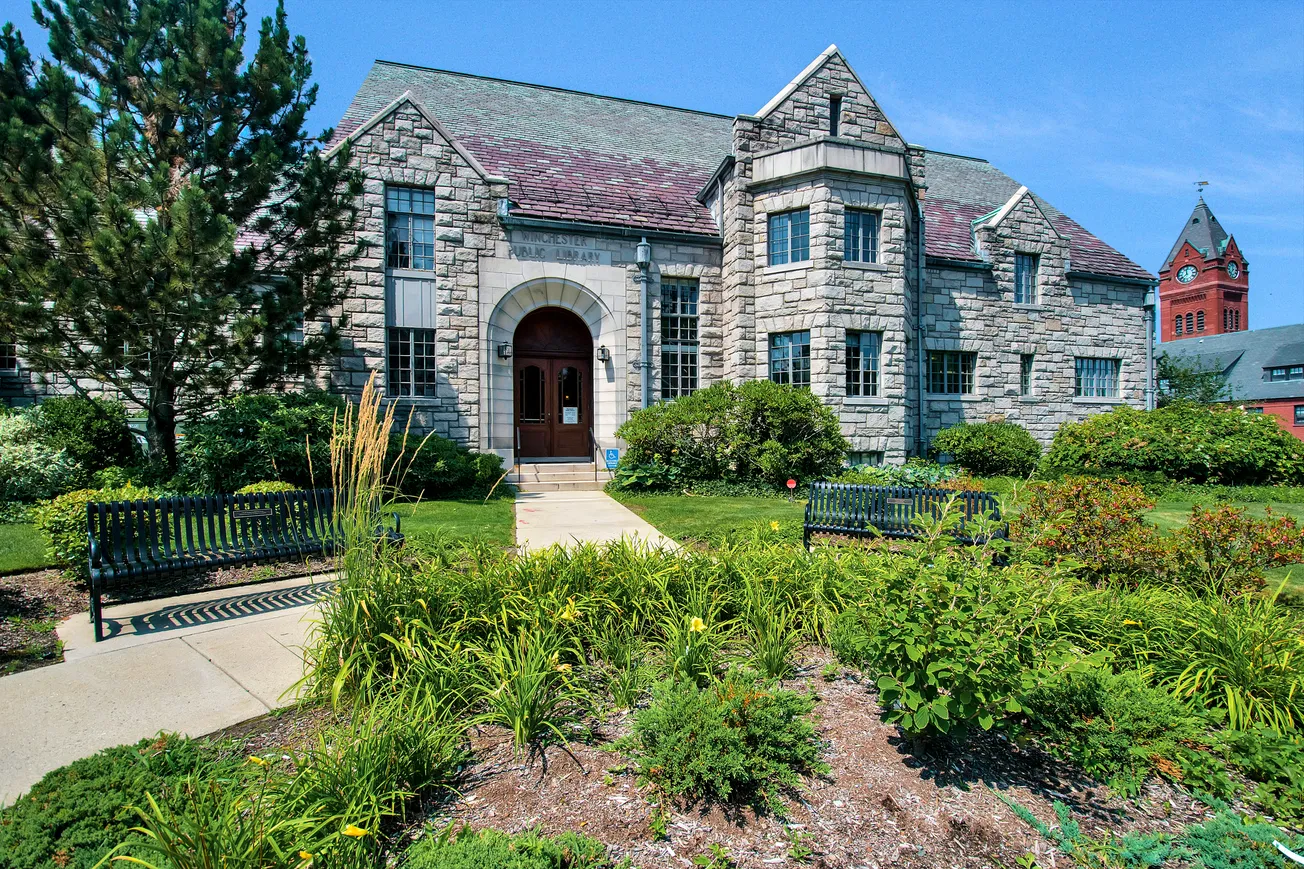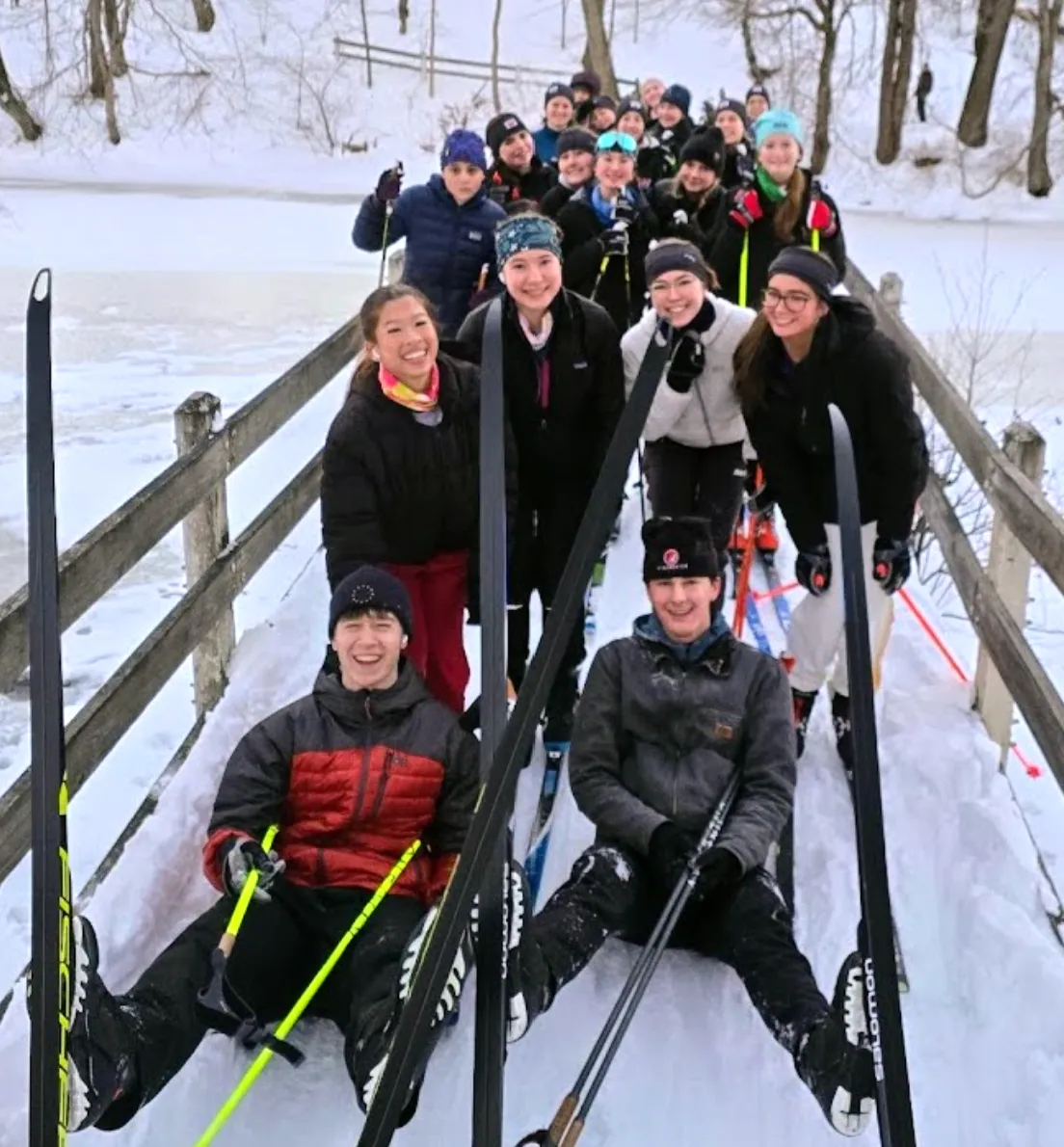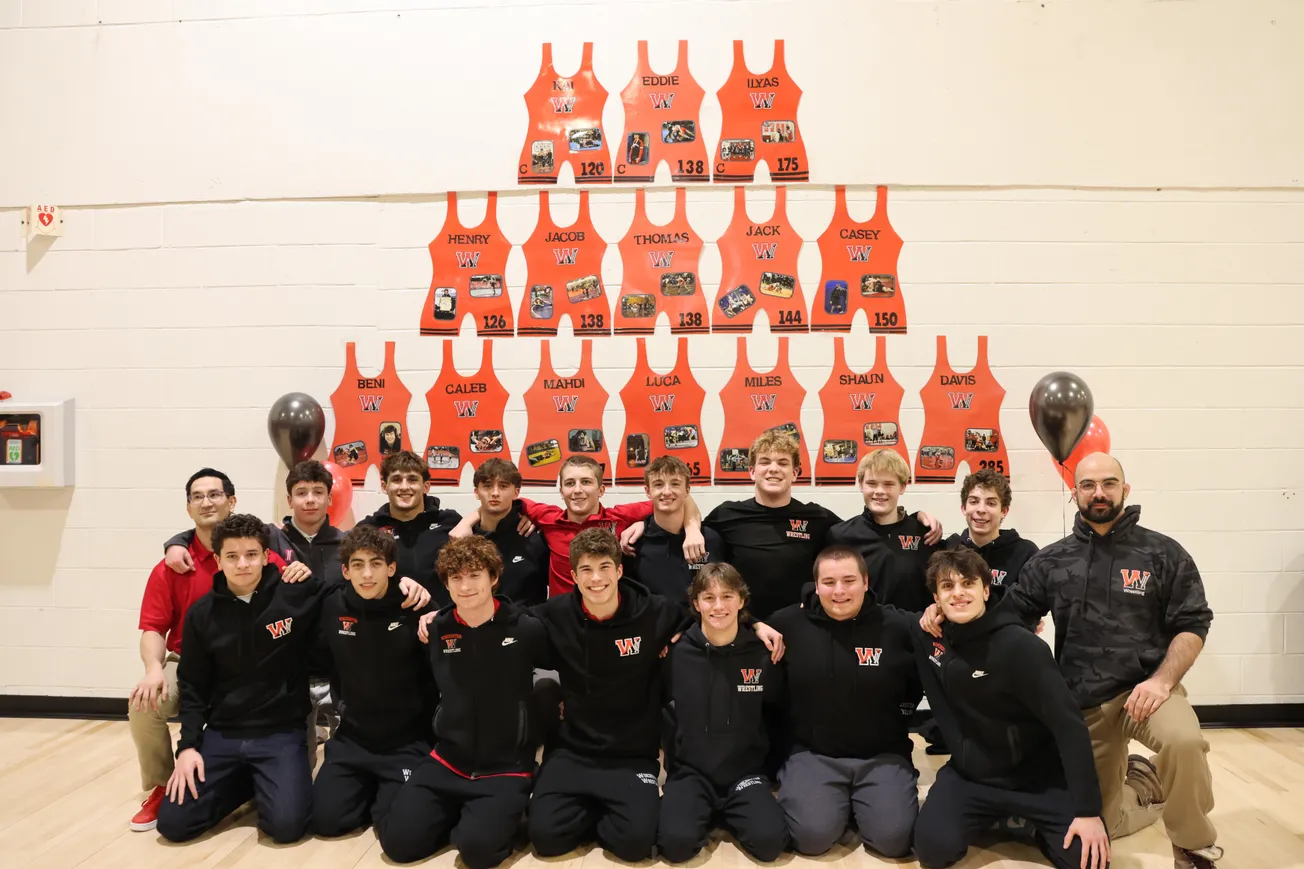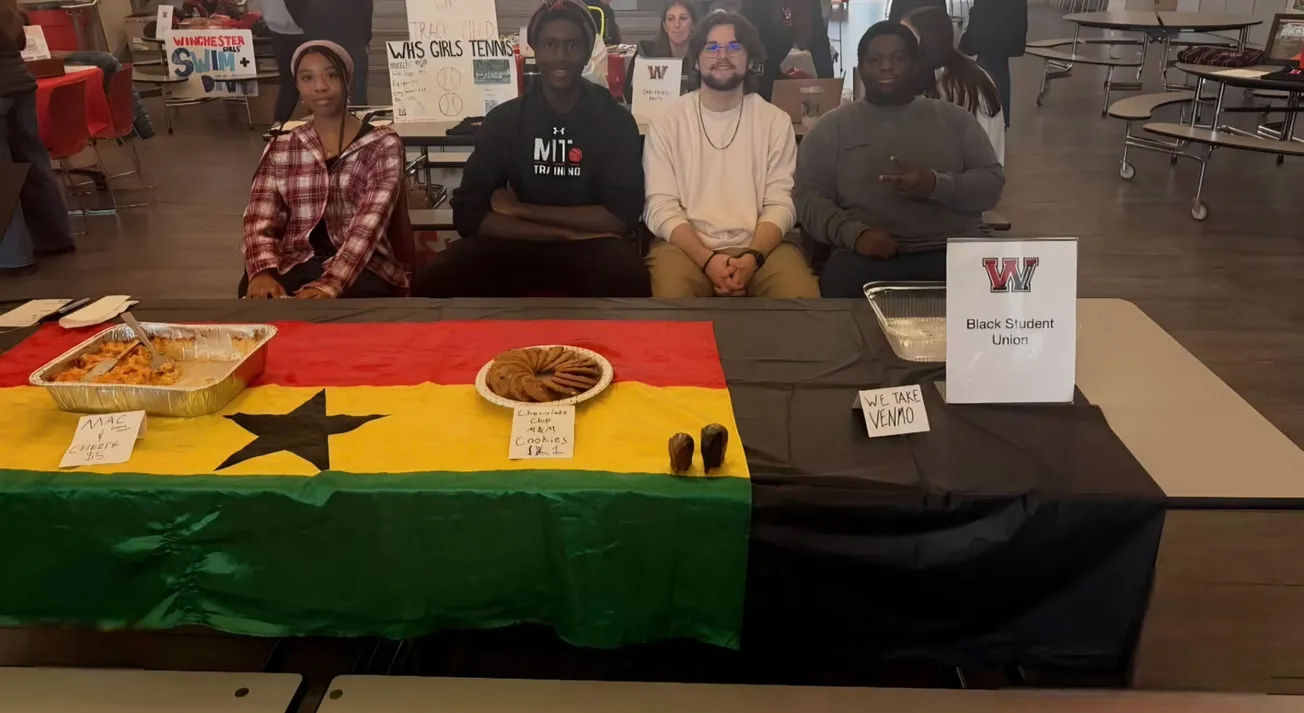Table of Contents
A downtown improvement plan has been designed and most of the Select Board agrees it has merit — but its implementation is in question.
The largest problem with the plan seems to be that there is no construction funding currently to move it forward, but Town Manager Beth Rudolph said she believes there are ways the project could be phased in.
The plan — which is funded through an earmark from the state and means the money can’t be used otherwise — looks at three areas: Quill Rotary, Main Street and the Waterfield/Thompson triangle. It also looks at adding and connecting bike lanes, bike trail/roadway intersections and making Winchester part of the regional bikeway system.
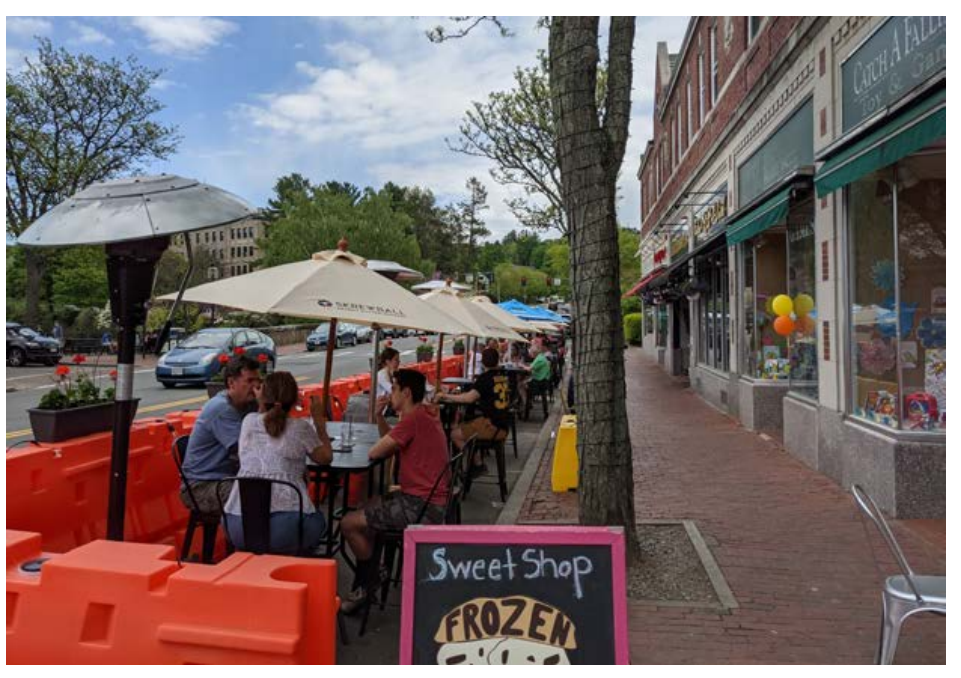
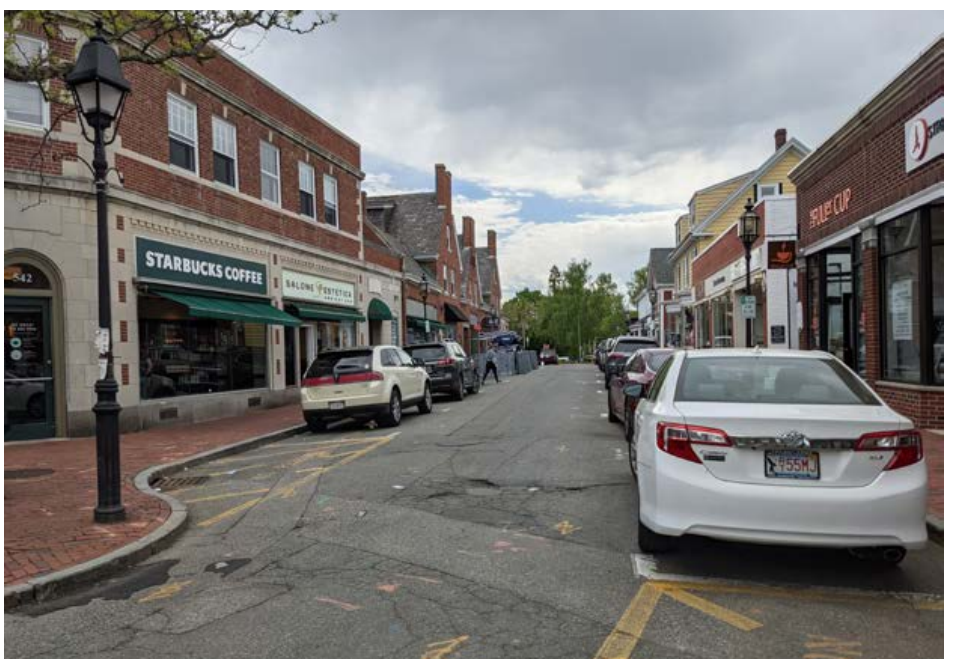
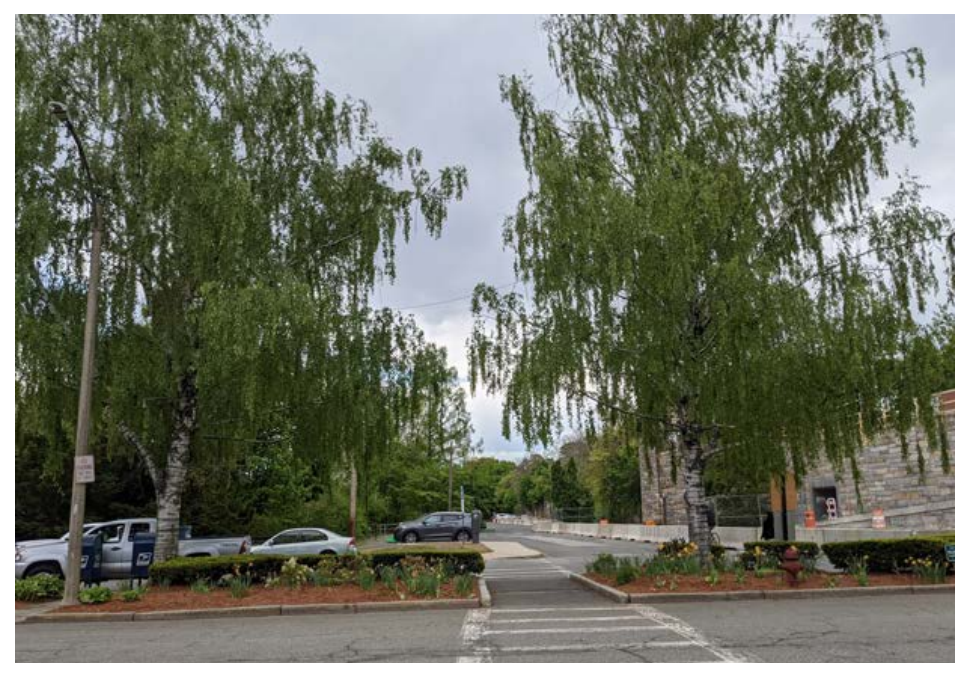
The downtown improvement plan will focus on Main Street, left, Thompson Street and the Waterfield island at Thompson Street. COURTESY PHOTOS/TOWN OF WINCHESTER
Karen Fitzgerald of Toole Design, who presented the design plan to the Select Board, called it the town’s opportunity to think of the next generation.
Select Board Chair Michelle Prior said the plan looks great, but in all honesty, it doesn’t interest her.
“We have way more important capital needs to do,” she said. “This is designed and I get that, but if I had $6 or $8 million, I would not spend it on sidewalks downtown.”
Select Board member Michael Bettencourt said the purpose of the plan “is to drive more people to the town center … to create capacity for businesses to thrive and for people to have more of a sense of place there.”
However, he also agreed with Prior, saying he doesn’t believe they could put this plan before voters or use stabilization funds to support it.
“It’s just not viable,” he said.
What’s the plan?
The plan looks at calming the traffic at the rotary by narrowing the truck apron, altering the various entrances to the rotary, shortening crossings, expanding sidewalks and designating delivery parking under the bridge.
For Main Street, Fitzgerald said the plan is to retain or replace existing trees, change up the sidewalk material, add seating areas, public art and overlooks at Mill Pond.
Street trees were ripe for discussion, with Fitzgerald advocating for new trees over preserving the old.
“That is something we all struggled with,” she added.
Rudolph agreed it was the right thing to do long term.
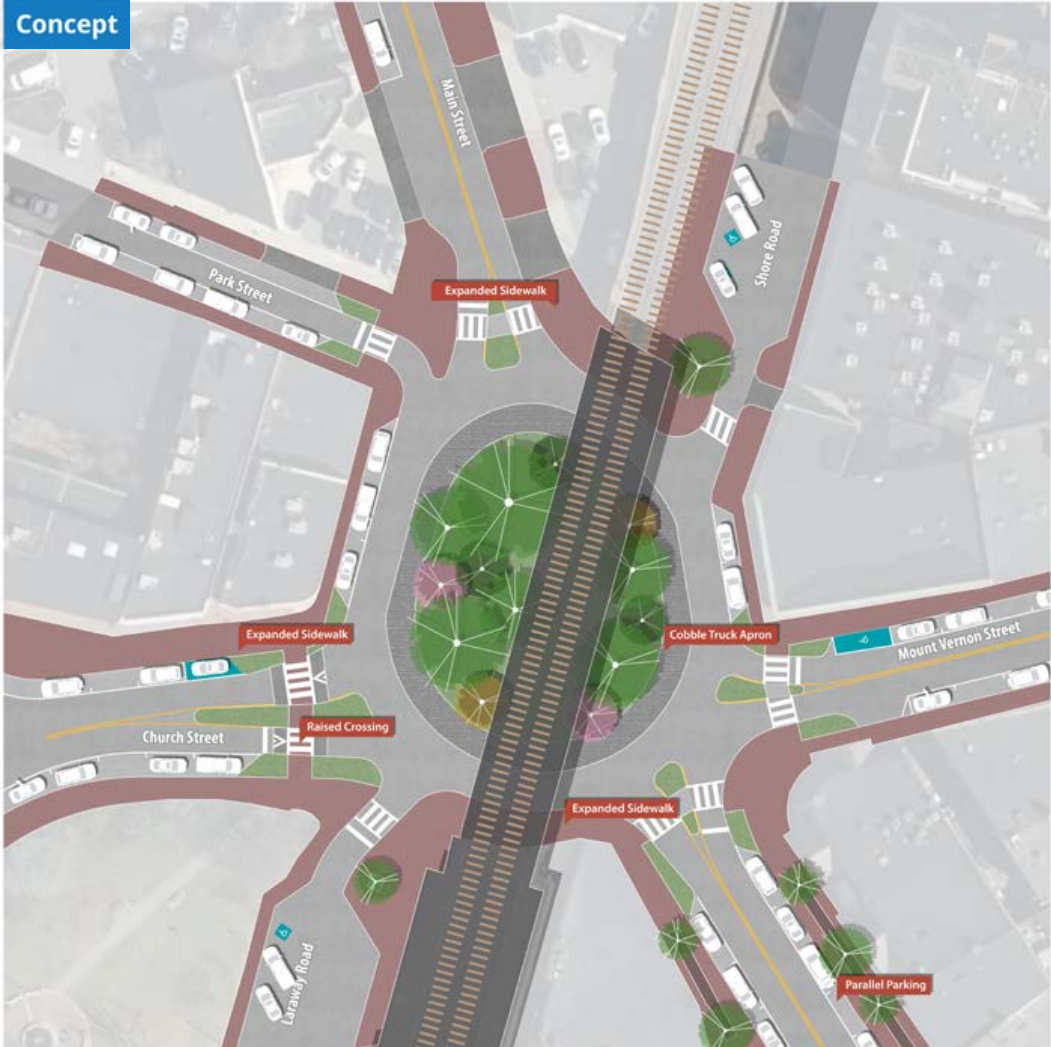
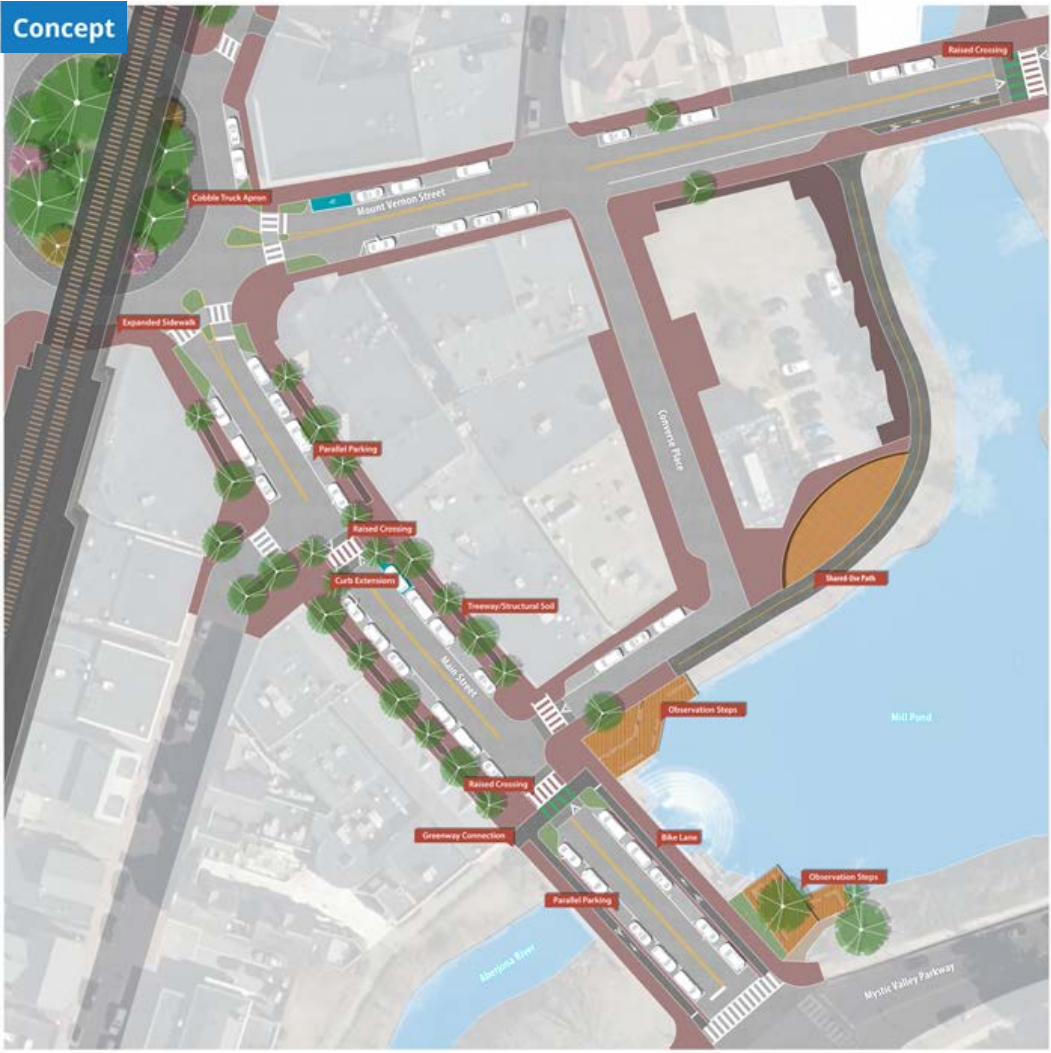
Concept art for the new rotary, left, and Main Street improvements. COURTESY PHOTOS/TOWN OF WINCHESTER
Select Board member Bill McGonigle asked if there was any way to save the trees and replant them elsewhere, but Fitzgerald was quick to say, “no way.” She said the town could spend a lot of money trying, but they aren’t heritage trees the town would want to work around.
At the triangle, all parking would be retained, a curb extension at Thompson would be added as would a continuous sidewalk along Waterfield Road. There would also be designated loading and delivery zones and possibly pavement treatments at the MBTA drop off area.
Select Board member John Fallon asked how Toole decided which areas to focus on, as some residents questioned why certain streets were included or excluded from the project. Fitzgerald said the focus was on the downtown area and pedestrian safety.
“So when we did our tour of walking around, we noted where it’s really dangerous to cross the street, where the paving is a problem, ramps that are not up to speed and that kind of thing,” she said. “We didn’t go beyond those legs of the rotary … for reasons that once you get past that intersection, it’s a beautification really and not safety improvements.”
Fitzgerald said among the bulleted list of things they heard from people when developing the downtown plan was parking, parking, parking.
“We are not removing parking on Main, at the rotary,” she said.
Fitzgerald said there was only one location where they might make a trade off and lose some parking, but all the rest of the parking and handicap spots would be retained.
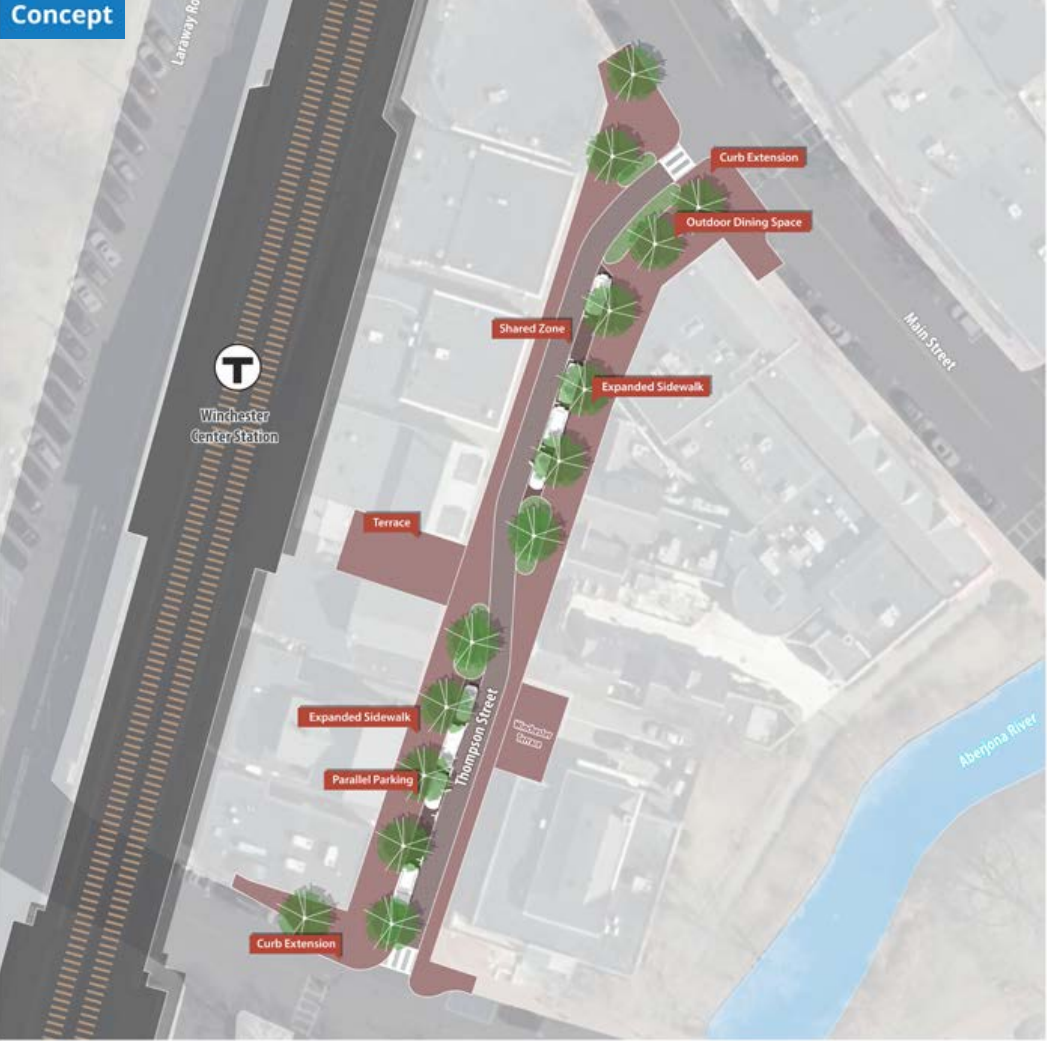
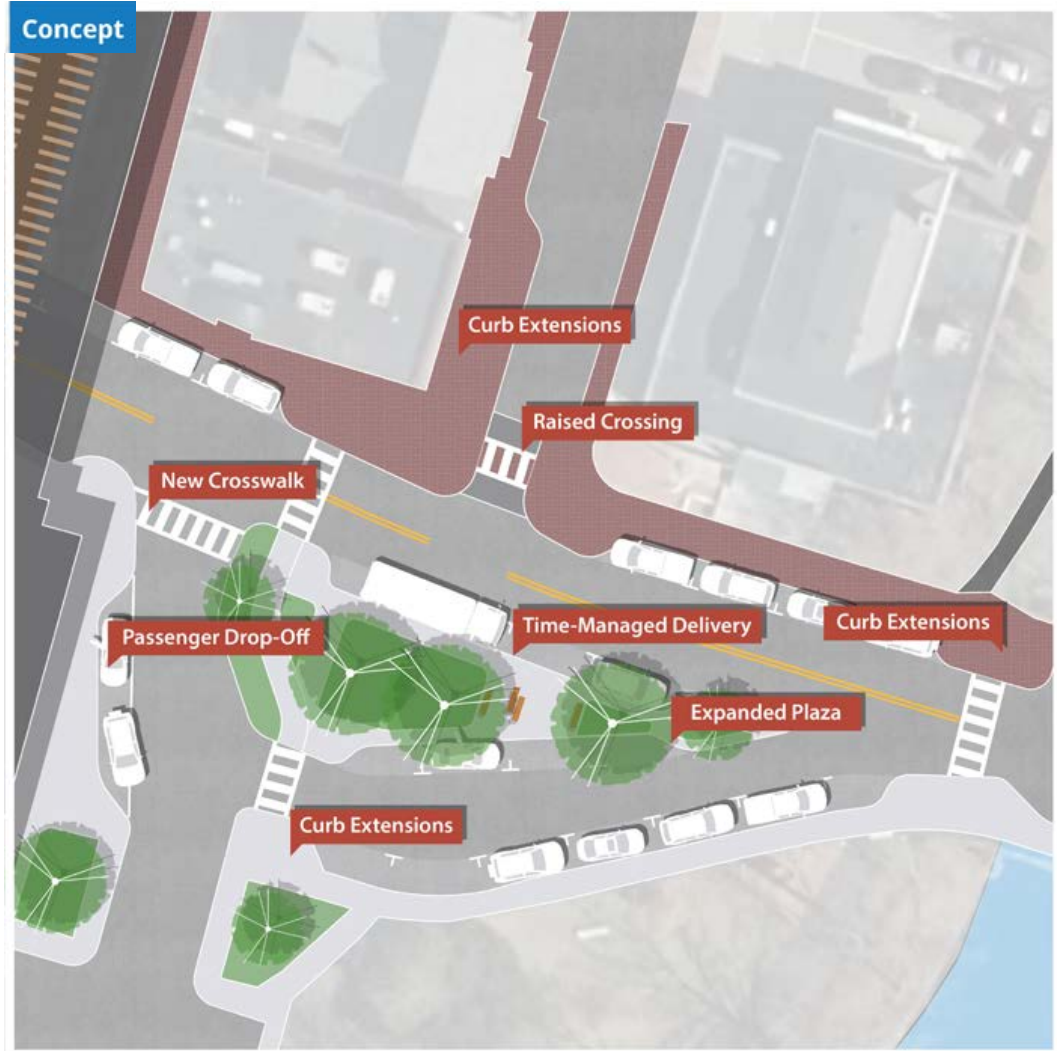
Concept art for the Thompson Street, left, and Waterfield island at Thompson. COURTESY PHOTOS/TOWN OF WINCHESTER
Fans of the plan
McGonigle said he was all for the plan acknowledging that they may have to tinker with some parts of it to ensure a safe workable flow.
“I think it creates a lot more potential for downtown and bringing the town together downtown,” he said.
Fallon also said he thought the plan had merit for bringing the community together and getting people out of their houses. He said he recently saw a couple talking in front of CVS and there was no room to get by them.
“It doesn’t invite that type of free form conversations,” he said. “It was a Saturday morning and you could just see how there could be more of that … and I think that’s what this does. So thank you.”
Though she would rather spend money elsewhere, Prior did say there was a lot of good work in the plan and thanked Fitzgerald for her work on it.
Fitzgerald said they would do a final review of the plan.
“And then there will be a final design package and then for bidding and all of that, that will have to come together at the time and see, does it make sense to spend money,” she said.

